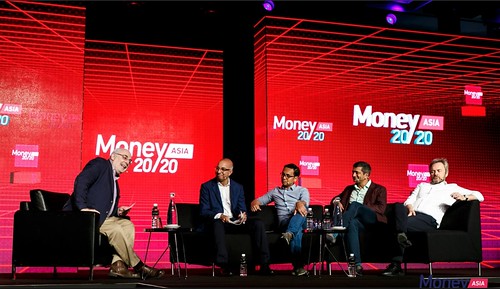At Money20/20 Asia in Singapore this year, I had the privilege of charing the opening session on day two. The session was called "Wake Up with the CEOs" and the idea was to have a session where the audience could listen in on a discussion between people at the top of the industry, discussing the issues of the day. I have to say that from the feedback I got, it turned out to be a brilliant idea. Mind you, with a panel comprising Ron Kalifa (Vice Chairman of Worldpay), Aldi Haryopratomo (CEO of GO-PAY, here talking on CNBC), Rohan Mahadevan (SVP International Markets of PayPal) and Laurent Le Moal (CEO of PayU) it would have been difficult to make it boring.
There was no shortage of issues to discuss, one of them being that Worldpay (which The Economist called a “payments plumber”) is merging with FIS to create a $43 billion industry behemoth with the power to re-shape the sector (and with the announcement that they are enabling AmazonPay for their online merchants, they've already begun to do that) just a couple of months after Fiserv bought First Data in a $22 billion deal. And PayPal has just invested $750m in a Latin American processor, signalling more global ambitions. Meanwhile the scale of the Asian “wallets” continues to astonish (digital wallets will be a $25 billion business in Indonesia alone within five years). What a time to be in this business!
One particularly interesting part of the conversation was about the relationship between payments and wallets. Obviously a wallet without payments is useless, but it’s not necessarily the payments that are the profitable part of the wallet. I might not go so far as to call them a Trojan horse, but they are a way to create a channel for higher added-value services. The way that Go-Jek created to the Go-Pay wallet to allow its drivers to get paid, and then the Go-Pay wallet gives access to other financial services is a model that is spreading [Nikkei Asian Review]. What’s more, these Asian players are now beginning to look to other markets (Last year, China’s Alipay paid some €200m to sponsor European football) and I’ve no doubt that their energy will benefit those markets.

Comments
Post a Comment